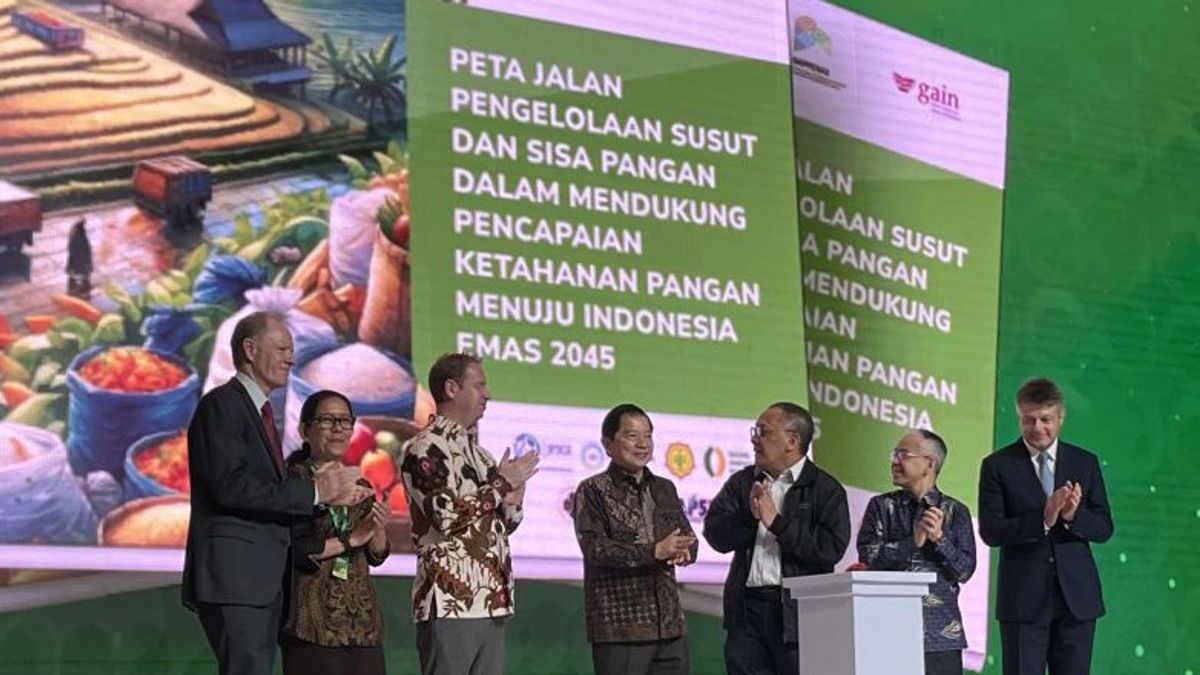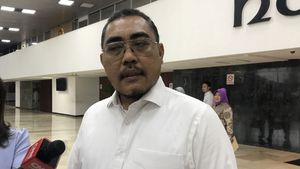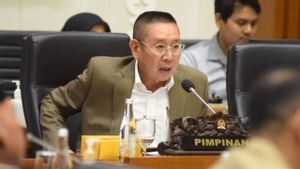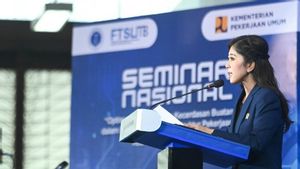JAKARTA - The Ministry of National Development Planning/National Development Planning Agency (PPN/Bappenas) launched the Roadmap & National Action Plan for the Indonesian Circuit 2025-2045 and the Roadmap for Susut Management and Food Remainings to Support Food Security Achievement Towards Indonesia Gold 2045.
"Through cooperation with various parties, a roadmap has been arranged and a circular economic action plan, as well as a roadmap for decreasing aftershocks and food remains launched today," said Minister of National Development Planning/Head of Bappenas Suharso Monoarfa at the Green Economy Expo 2024 in Jakarta, quoted from Antara, Wednesday, July 3.
Based on the National Long-Term Development Plan (RPJPN) 2025-2045, Indonesia is committed to overcoming climate change by preserving natural resources and the environment so that future generations will benefit from these efforts.
Therefore, the decrease in the intensity of greenhouse gas (GHG) emissions towards net zero (net zero emission) emissions is carried out through a green economy based on low-carbon and climate-resilient development.
As one of the strategies to realize a green economy, the circular economy will encourage the implementation of 9R (Refuse, Rethen, Reduce, Reuse, Repair, Refurbish, Remanufacture, Repurpose, and Recycle) which includes interventions throughout the value chain.
The implementation of the circular economy which is applied to five priorities, namely food, electronics, plastic packaging, construction, and textiles, will provide benefits. Some of these benefits are an increase in gross domestic product (GDP) to IDR 638 trillion by 2030, the creation of 4.4 million green jobs with 75 percent being female labor until 2030, to a contribution to reducing GRK emissions by 126 million tons of carbon dioxide.
In the food sector, controlling aftershocks and food remains are one of the priority intervention strategies that can reduce the number of waste generation by 18-52 percent compared to business as usual by 2030, preventing the risk of economic loss of around IDR 231 trillion-IDR 551 trillion per year.
The use of food remains that are still feasible for consumption is also said to be able to meet the energy needs of 62 percent of the total population who lack energy, and contribute to reducing emissions of 1,702.0 metric tons of carbon at the equivalent oxide or 7.3 percent of the total GHG emissions in 2019.
The various findings above are based on several studies compiled by Bappenas by collaborating with many parties since 2020, namely studies on the benefits of the social economy and the circular economy in Indonesia (in 2020), food loss and waste studies (in 2021), and circular economic initiative books (in 2022), and other supporting studies," said Suharso.
In 2023, Bappenas is said to have calculated the level of circular economic achievement by the government and business actors. The results show that Indonesia's circular economy achievement for the five priority sectors is a circular material input rate of 9 percent, a product endurance rate of 4 percent, and a recycling rate of 5 percent.
This achievement is considered very low when compared to other countries, so it is necessary to strengthen, plan, and strategy for unlocking various benefits that have been maintained by referring to the 9R framework.
On this occasion, his party appreciated the contribution of various parties to the preparation of the two documents. Starting from the Coordinating Ministry for the Economy, the Ministry of Environment and Forestry, the Ministry of Industry, the National Food Agency, the National Research and Innovation Agency (BRIN), the Government Goods and Services Procurement Policy Institute, other technical ministries, local governments, business actors, associations, and development partners.
SEE ALSO:
"During the preparation of these two documents, we hope that these two documents will be used as a reference by all stakeholders. We also hope that the Green Economy Expo 2024 will become a filling point for green innovation, where ideas, solutions arise, and be discussed," said the Minister of VAT.
The Green Economy Expo 2024 which carries the theme "Advancing Technology, Innovation, and Circality" is supported by PT Pertamina (Persero), UK Foreign, Commonwealth & Development Office, USAID SINAR (United States Agency for International Development Sustainable Energy for Indonesia's Advancing Resilience), GIZ, European Union, Embassy of Denmark, Yokogawa Indonesia, United Nations Development Programme (UNDP), Global Green Growth Institute (GGGI) Indonesia, Global Alliance for Improved Nutrition (GAIN), and UN Partnership for Action on Green Economy (PAGE).
"I invite all of us to be the driving force for change in the circular economy as part of the green economy," said Suharso.
The English, Chinese, Japanese, Arabic, and French versions are automatically generated by the AI. So there may still be inaccuracies in translating, please always see Indonesian as our main language. (system supported by DigitalSiber.id)















